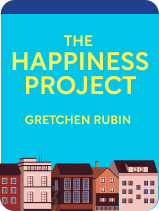

This article is an excerpt from the Shortform book guide to "Stealing Fire" by Steven Kotler and Jamie Wheal. Shortform has the world's best summaries and analyses of books you should be reading.
Like this article? Sign up for a free trial here.
How can reaching a higher consciousness benefit you? What are peak states?
According to the authors of Stealing Fire, Stephen Kotler and Jamie Wheal, reaching a higher consciousness leads to intrinsically fulfilling experiences, which benefit us in numerous ways. The authors argue that these peak-state experiences may be deeply transformative.
Read on to learn about peak states and the benefits of reaching a higher consciousness.
Benefits of a Higher Consciousness
According to Stephen Kotler and Jamie Wheal, reaching a higher consciousness benefits you in many ways. In their book Stealing Fire, the authors explain that reaching a level of higher consciousness (which they call a peak state) benefits you in two ways:
- Peak states produce intrinsically meaningful experiences—in other words, they can be highly fulfilling.
- Peak states can enhance human creativity and help us solve complex, real-world challenges.
Benefit #1: Peak States Produce Meaningful Experiences
The authors contend that peak state experiences often have a lasting positive impact on who you are and the life you choose to live. This benefit comes from the various qualities of reaching a level of higher consciousness, as described below.
According to the authors, the underlying characteristics of peak states are fairly consistent from person to person. That is, different people typically describe the content of the experience differently (whether they feel they met God, merged with the divine, blasted off to hyperspace, etc.), but beneath these subjective descriptions are four essential qualities that are common to many peak state experiences:
Quality #1: Dissolution of the self—Your normal sense of self—the feeling that “I am this particular human being”—dissolves. The authors say that this occurs because activity in your brain’s prefrontal cortex largely shuts off, quieting the voice that normally monologues in your head. The authors report that this expands your sense of who you are, and you may see your normal identity as merely a “mask” you wear.
Quality #2: Distortion of time—Usually, various networks in the brain keep you oriented to the normal flow of time. During a peak state experience, the authors say that activity in these networks decreases. This drops you into what researchers call the “deep now,” a state wherein you experience peace, inner spaciousness, and a profound sense of presence.
Quality #3: Profound ease—As you become selflessly present (fully engaged in the moment and lacking your normal sense of self), a host of neurochemicals cascade through you to produce great ease, also called “flow.” This powerfully pleasurable sensation makes the state feel intrinsically meaningful.
Quality #4: Perceptual enhancements—As brain functions change, normal consciousness recedes and the unconscious mind takes over. According to the authors, the unconscious can process far more information than the conscious mind, so you begin to perceive a deeper, richer field of information. You see details and connections that normally aren’t apparent, and this often produces powerful insights that fuel personal growth even after the experience ends.
Altogether, the authors contend that these four qualities produce deeply meaningful and often transformative experiences. As another benefit, many people report that reaching a higher level of consciousness ranks among the most meaningful experiences of their lives.
| Beyond the Brain: The Transformative Power of Subjective Experiences Above, the authors explain peak states largely in terms of neurochemical research findings. However, the full significance of peak states may go beyond a reductionist explanation of how they work in the brain. Your brain chemistry and active brain regions may shift, as the authors describe, but some argue that the subjective experiences of peak states have a transformative power that’s distinct from the related neurochemical changes. This may be because the neurochemical effects that produce peak experiences are temporary and fade away, but the actual experiences are highly personal and can leave lasting impressions that catalyze long-term personal growth. Further, it isn’t clear that a reductionist approach to understanding the brain can produce truly precise explanations of how peak states work. Some theorists argue that consciousness—through which we have subjective experiences—is an emergent phenomenon rooted in matter (the brain) but not reducible to specific networks or neurochemical functions. From this perspective, the argument that peak states can be understood in terms of neurobiological changes is incomplete (though not fully wrong). So while we need to understand the biology behind peak states, we also need to acknowledge the persistent mystery of the subjective nature of these experiences and their transformative power. |
Benefit #2: Peak States Help Us Solve Difficult Problems
Beyond their benefits for individuals, the authors argue that reaching higher levels of consciousness, or peak states, can also help us solve complex collective problems such as poverty, war, and political disunity. They say that conventional, logical methods don’t work for these problems because they need creative, unconventional solutions—solutions that we can’t find without the expanded perceptual range and informational richness provided by peak states. For example:
Deep meditation stimulates lateral thinking: According to the authors, researchers have found that deep meditative states, such as those cultivated by Tibetan monks, promote lateral thinking. Lateral thinking involves drawing connections between seemingly unrelated ideas (whereas linear thinking means reasoning from A to B to C in a straight path). This can produce the creative, boundary-crossing insights needed to innovate and solve tough problems.
Microdosing enhances problem-solving: Studies on microdosing with LSD have found that it produces, at minimum, a twofold increase in problem-solving skills. In addition, participants came up with highly innovative solutions to tough research problems.
(Shortform note: While the authors argue that reaching higher consciousness benefits us because it might help us solve deeply complex global problems, the phenomena they cite above don’t directly support this conclusion. However, this doesn’t mean that their intuition is wrong—perhaps we just haven’t yet figured out how to leverage peak states within existing problem-solving frameworks. One approach is to explore how collective intelligence, a state of group flow reached through meditative dialogue, might generate emergent answers to difficult problems. This approach and others like it are currently being pioneered by groups such as Collective Presencing, an organization dedicated to exploring the potential of collective thought.)

———End of Preview———
Like what you just read? Read the rest of the world's best book summary and analysis of Steven Kotler and Jamie Wheal's "Stealing Fire" at Shortform.
Here's what you'll find in our full Stealing Fire summary:
- A modern revolution in the understanding of peak states of consciousness
- The key benefits of accessing peak states
- How some are turning to LSD and other substances to reach a peak state






